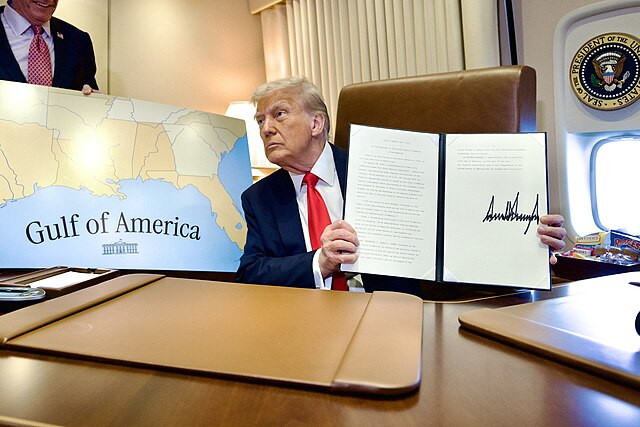President Donald Trump escalated his administration's campaign against international narcotrafficking this week, ordering a U.S. Navy missile strike on a suspected cartel-operated boat off Venezuela that killed 11 members of Tren de Aragua, a gang Washington designated a terrorist organization earlier this year.
The attack, confirmed by Pentagon officials and caught on video, marked the first time a U.S. military missile destroyed a suspected "go-fast" drug-running vessel. "There's more where that came from," Trump declared after announcing the strike.
The move drew comparisons to U.S. counterterrorism operations in the Middle East. "The president's overall perspective is that, if there is a terrorist threat to the homeland of the United States, he trusts the military to take that threat out - whether it's a drug boat off the coast of Venezuela or an al-Qaeda terrorist in the Middle East," a senior Trump administration official told Axios.
Critics called the strike a departure from decades of law-enforcement-style interdictions led largely by the Coast Guard, in which smugglers were arrested and narcotics seized for prosecution. What happened Tuesday was "a murder anywhere in the world," Colombia's president, Gustavo Petro, wrote on X. Former Human Rights Watch executive director Kenneth Roth added, "Trump admits he ordered a summary execution - the crime of murder. Drug traffickers are not combatants who can be shot on sight. They are criminal suspects who must be arrested and prosecuted."
U.S. officials defended the decision, citing Tren de Aragua's terrorist designation. Secretary of State Marco Rubio, speaking in Mexico on Wednesday, said: "The President of the United States is going to wage war on narco-terrorist organizations." He argued that traditional interdictions are ineffective: "Because these drug cartels - what they do is they know they're going to lose 2% of their cargo - they bake it into their economics. What will stop them is when you blow them up, when you get rid of them."
Defense Secretary Pete Hegseth echoed that stance, warning on Fox News, "Anyone else trafficking in those waters who we know is a designated narcoterrorist will face the same fate." He added, "The only person who should be worried is Nicolas Maduro, who's running, effectively, as a kingpin of a narcostate."
Maduro, who has faced a $50 million U.S. bounty since Trump's first term, denounced the strike as a ploy to seek regime change. "Venezuela is confronting the biggest threat that has been seen on our continent in the last 100 years," he said Monday.
Not all U.S. voices were aligned with the policy. Sen. Rand Paul (R., Ky.) expressed concern, telling Newsmax that Congress should authorize war before "the administration wages full-scale war on cartels." According to Axios, Former U.S. Attorney Patrick Sullivan, who prosecuted Panama's Manuel Noriega after the 1989 invasion, noted the novelty of the approach: "We've never seen this before. This is a totally different approach. No one fired a missile at a go-fast boat and just destroyed it. It's just totally unheard of."
Isaias Medina, a former Venezuelan UN diplomat turned dissident, defended the operation as a turning point. "The recent U.S. Marine strike on the alleged Tren de Aragua narcotics vessel operated out of Venezuela under a regime deeply linked to crimes against humanity and narco-terrorism marked a turning point in the fight against international organized crime," he told Fox News Digital. "Safe harbors in international waters are no longer sanctuaries for traffickers and smugglers."






